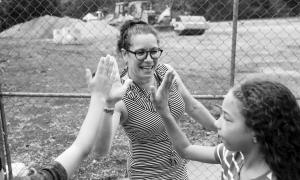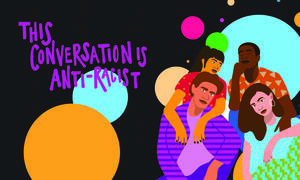article
From Grove City to Woodbrook: Lisa Molinaro’s Epiphany

Lisa Molinaro began her career in education as a 20-year-old at the all-boys George Junior Republic juvenile delinquent center in Grove City, Pennsylvania. Her students were primarily young black males between the ages

